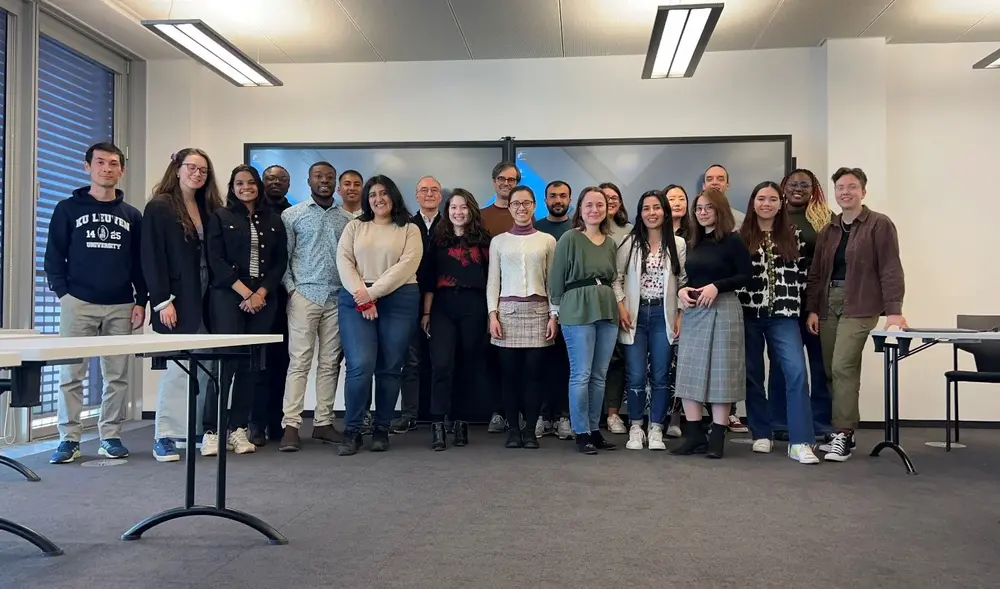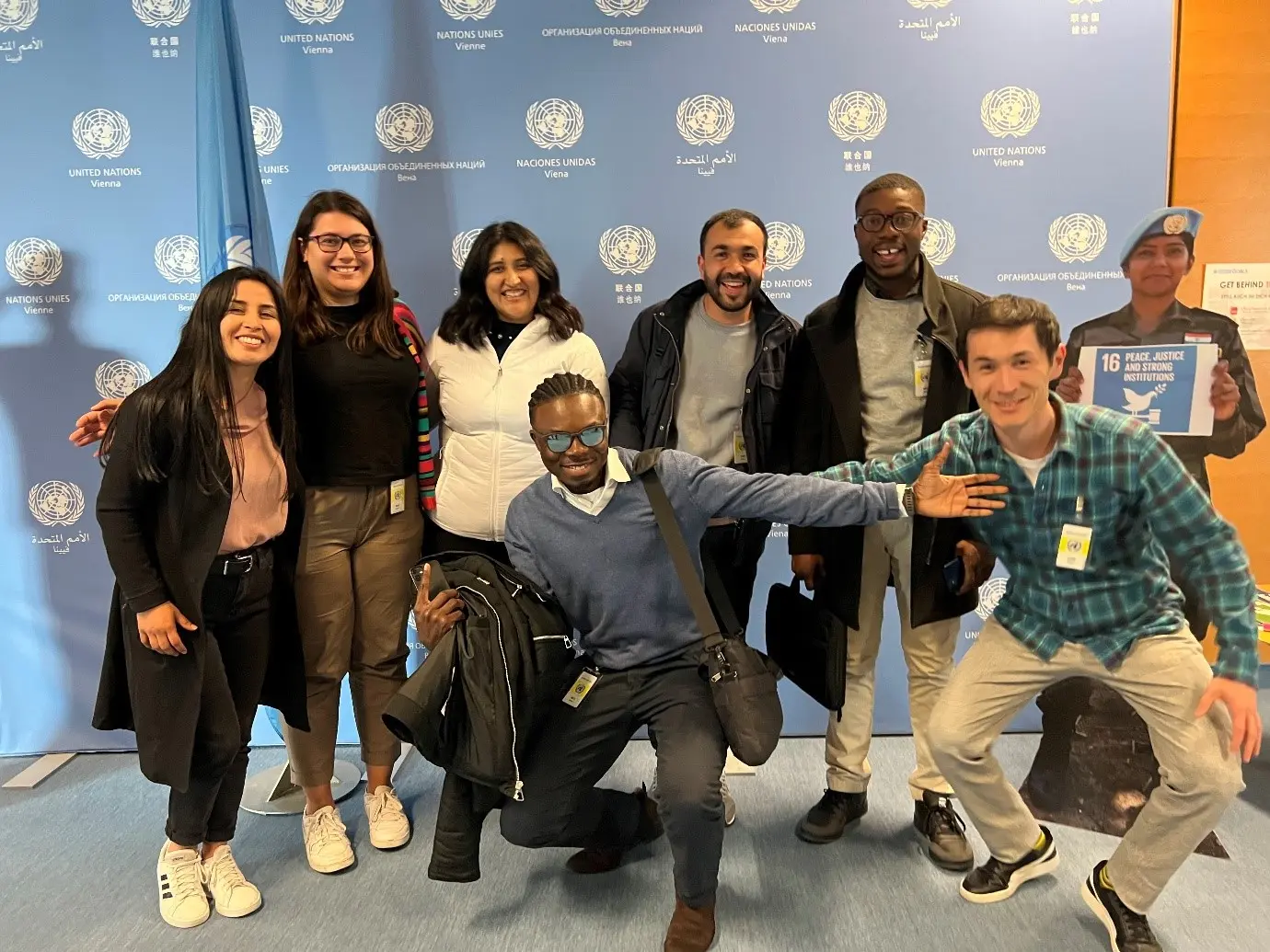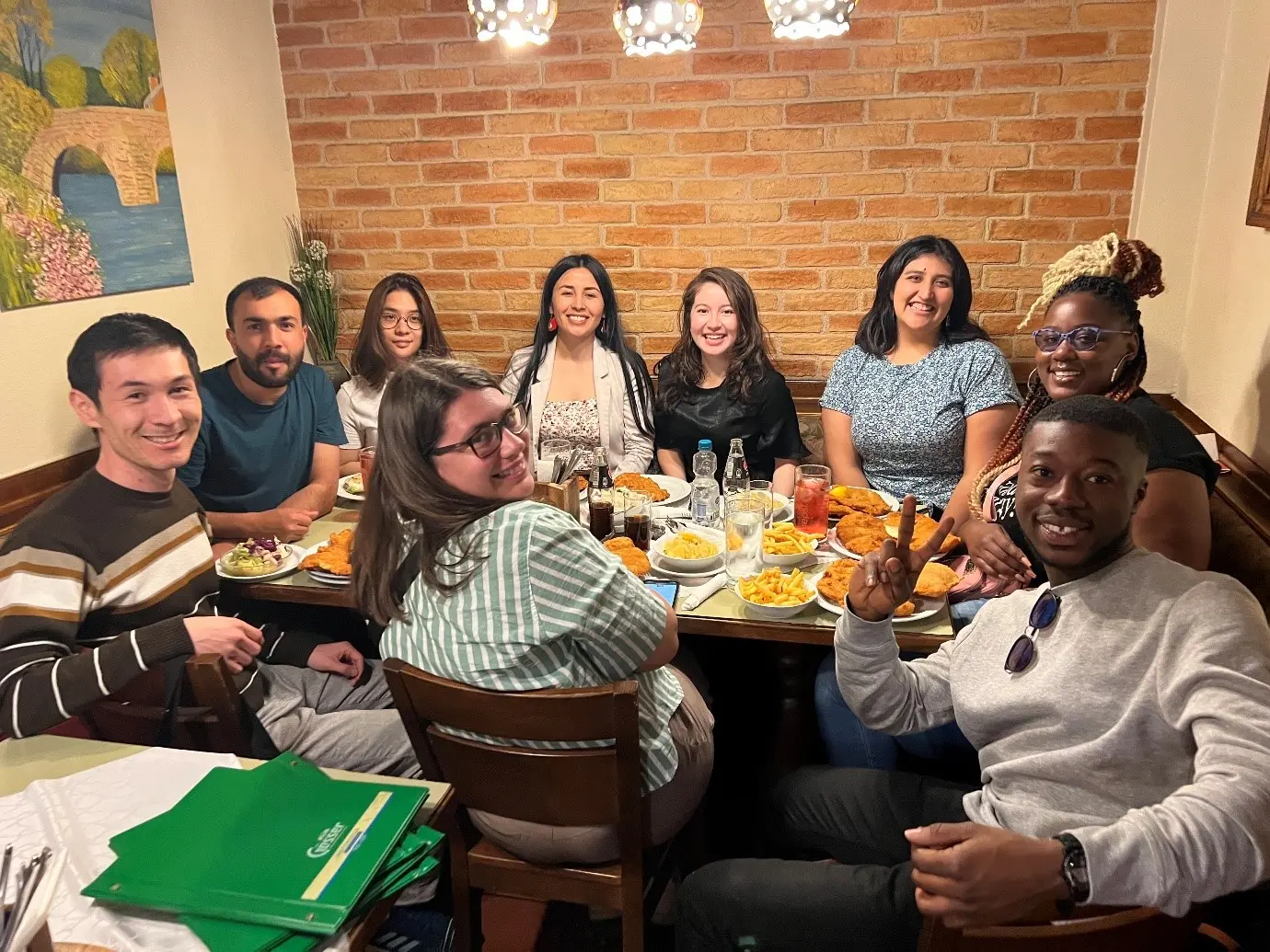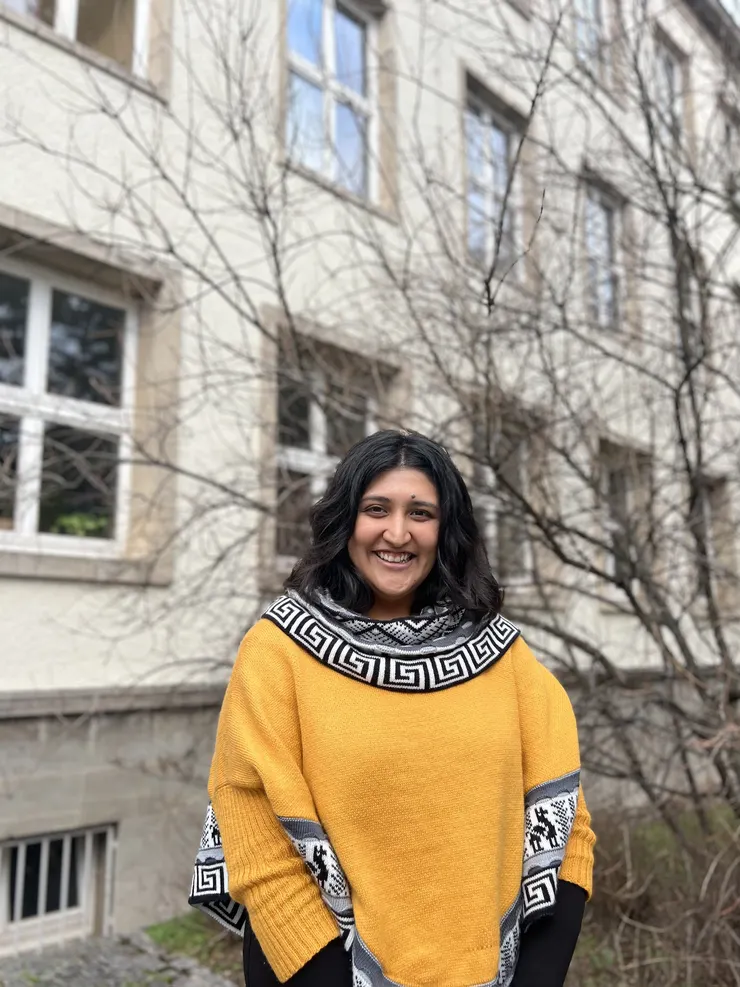An interdisciplinary weekend: Brandt School Students visit the CEU for joint-course

Last week, nine students of the Master of Public Policy and two PhD candidates of the Brandt School got the chance to travel to Vienna to participate in a joint-course on “The Politics and Policy of Aid” with the Central European University, taught by Prof. Kemmerling and Prof. Bodenstein. As we hopped on the train on Wednesday, we were all excited to learn more about development aid from a policy perspective and were ready to continue the learning process that had started the week before with our two introductory online lectures on the topic.
However, the trip turned out to be much more than just attending a lecture in another university. Already on the train we got a chance to learn more about each other, exchanging experiences on other classes we had taken, and our own academic and professional backgrounds; therefore fortifying bonds with our fellow students.
Early on Thursday morning, we made our way to the Central European University (CEU), excited to get to know our classmates from said institution and share knowledge amongst each other. We started the day talking about the history of bilateral and multilateral aid, with games and discussions in between as part of the “sharing sessions” led by teams of both WBS and CEU students. The aim of the “sharing sessions” was to break away from the traditional format of team presentations and find strategies to introduce a topic in a way that it incentivized participation from the class. It was really interesting to see the different perspectives we had regarding the roles of multiple actors involved in aid giving and the complex processes through which aid is allocated to different countries.

After a small lunch break, we headed towards the United Nations Offices in Vienna. We took part in a very insightful tour regarding the institution, which showed how the architecture and decoration of the building reflected the values and work of each of the agencies operating there. Additionally, we had the chance to learn more about the United Nations Industrial Development Organization (UNIDO) and some of their current projects around the world, allowing us to see how multilateral aid is put into practice through this specific and highly specialised agency. Later that day, we met again with our professors and fellow CEU students for dinner at a traditional Viennese Biergarten, where we got to know the CEU students that attended and shared experiences from our studies and careers.

On Friday morning we headed back to CEU for our last session. We started the day with a very fun role play exercise in which the class was divided into four groups: two NGOs, one group of philanthropists and one group of celebrities. The aim of the game was for us to see the many stakeholders involved in the decision-making process of aid giving and how different interests come into play when celebrities and philanthropists decide which cases to support. It was a great way to begin the day and successful in getting everyone involved with the course material in a more practical and engaging manner.
As the day progressed, we continued our conversations regarding the more real and pressing debates around aid, such as types of aid and conditionality. We also got to explore the topic of ownership of development aid, where we participated in a very insightful exercise regarding how to involve the beneficiaries in the aid giving process. The discussions in class allowed us to see beyond the academic perspective and the literature, so to get more personally involved with the topic of development aid. Moreover, hearing and learning from the country-based experiences of our classmates enriched the conversation, with some coming form Peru, Colombia and Afghanistan. This made it possible for us to see how aid works in different contexts and how the same donors conduct themselves differently and make use of distinct structures in different countries.
Although the classes ended on Friday, our learning process did not. Right after class, we headed over to the Blicke Kino, to attend the screening of the documentary “f@ck this job” as part of the “Verzió Human Rights Documentary Festival” organised by the CEU in cooperation with Belvedere21. The film follows the story of Dozhd TV, an independent Russian news station, and its struggle to report events ignored by the state-controlled media. As policy students, we not only were intrigued by the premise of the documentary but also found it to be truly interesting and a source of interesting discussions about the role of the media in autocratic contexts.
The rest of our stay in Vienna was filled with quick but fascinating activities of tourism that allowed us to know the city from a more historical and political perspective. We were able to visit the main monuments, such as the Schönbrunn Palace, which many of us enjoyed; as well as some other more cultural sites, such as the House of Mozart. Experiencing the city with our classmates from all over the world, as well as some of our CEU colleagues, made our visit unique, since all the historical and cultural activities we took part in were accompanied by unforgettable conversations about our own countries, experiences, insights and, of course, political and policy beliefs and ideas.
All in all, the joint-course on “The Politics and Policy of Aid” offered by the Willy Brandt School and the Central European University not only was an opportunity to connect with students from different universities and learn more about the history and current discussion on development aid but also allowed us to experience a new city with our classmates, learning more about each other. I am truly grateful to have been able to take part in this trip and believe it is a true expression of the aims of the Brandt School as a trans-disciplinary and global-focused institution.
About the author

Maria-Fernanda Caparó is a first-year student at the Brandt School. She holds a Bachelor of Laws from the Pontifical Catholic University of Peru and has gathered professional experience in the public sector and the international level. Her interests include democratic rule, human rights, development policies and peace studies.
~ The views represented in this blog post do not necessarily represent those of the Brandt School. ~